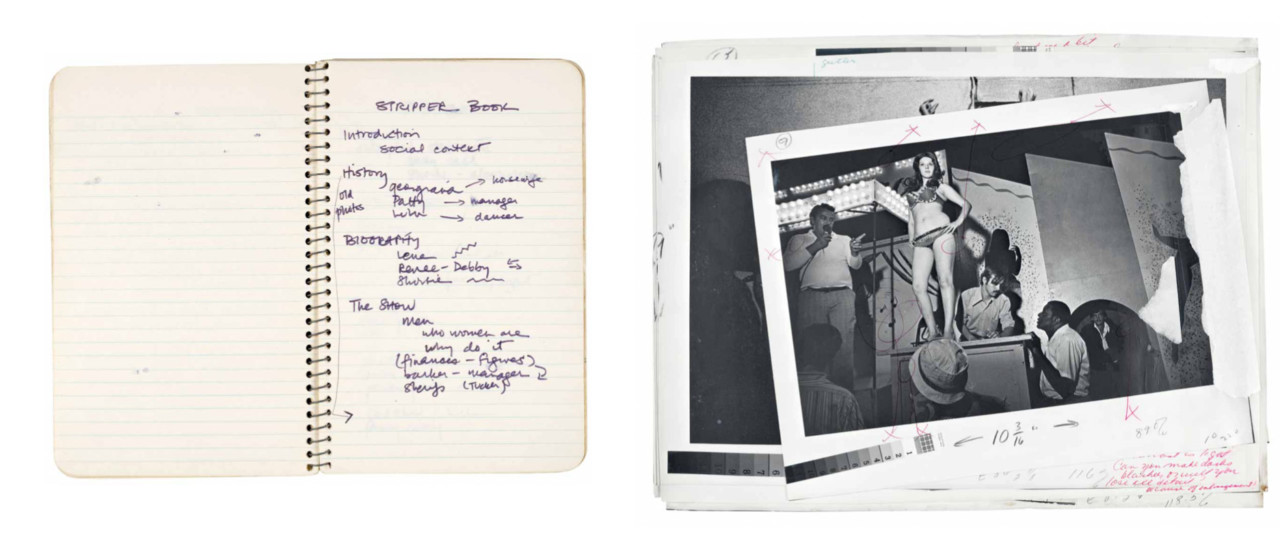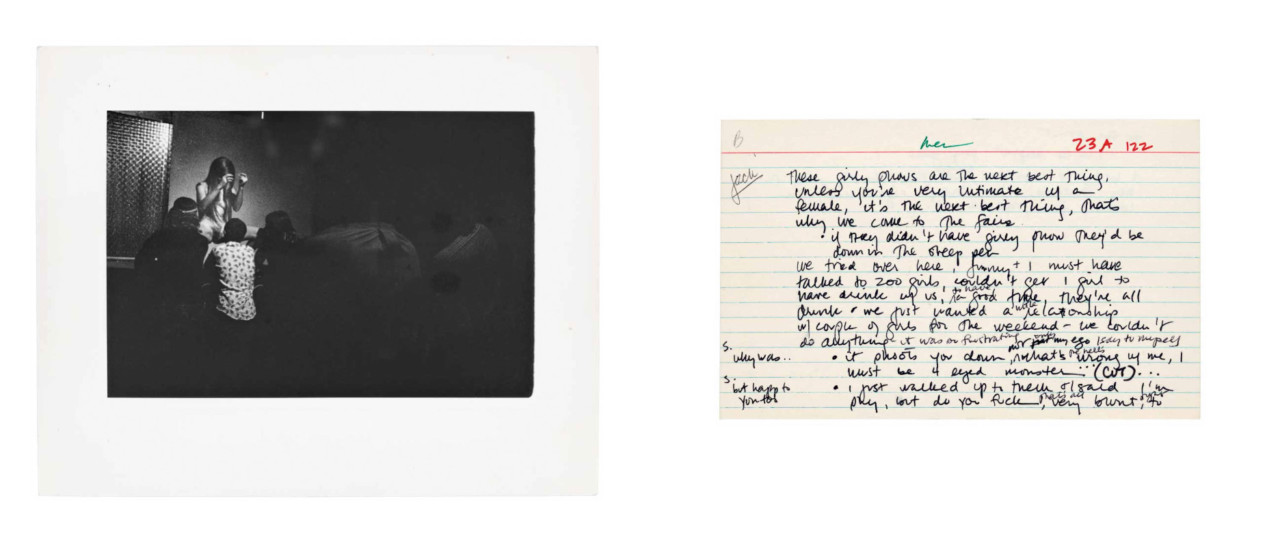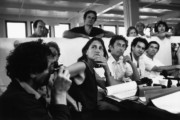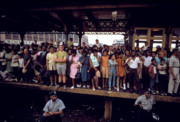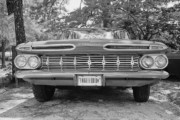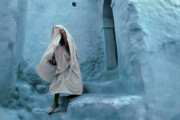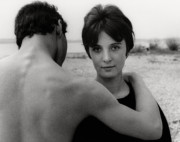Watch: Susan Meiselas’ Carnival Strippers Tell Their Stories
A mosaic of interviews, field recordings and archival ephemera form an integral part of the seminal photographic project
Shop the new edition of the Carnival Strippers Revisited book — signed by Susan Meiselas — here, and find information about the Carnival Strippers Revisited exhibition — now showing in Paris — here.
Carnival Strippers, originally a photo essay following the women who performed in travelling ‘girl shows’ in the United States from 1972 to 1975, is often held as a pioneering example of a photographic project that shares authorship with the subjects of its images.
Interrogating gender politics and self-representation, the project is defined as much by the testimonies of the women involved as the photographs Meiselas took of them. The project sought to make a feminist argument which resounds particularly today as the project celebrates 50 years since its making.
"Honest to god, the men are the performers. The women are the audience, it’s [the men’s] show that I’m going to see, it’s not mine. I’m getting paid for being in the audience—it’s audience participation."
- interviewee
A third edition publication of the project, published as ‘Carnival Strippers Revisited’ now unfolds the central themes of the work through the additional of new material. Published on Steidl, it includes unseen color photographs, contact sheets, handwritten field notes, and interview transcriptions. Carnival Strippers Revisited explores how representation of ourselves and others is a process that refracts through many layers. In these layers, the creation of our stories is a collective activity mediated by multiple and far-reaching points of view.
In this new clip above, we share audio material from Meiselas’ interviews with the strippers and other carnival workers. Through testimonies not traditionally represented within the women’s liberation movement, the showgirls’ answers lucidly deconstruct the workings of patriarchy. At the same time, their managers’ disparaging comments provide a poignant and ironic counterpoint.
Meiselas, who sought to document a phenomenon already in decline, was interested in the ways we capture history from early on during her career. With this new expansion on Carnival Strippers, we see the project as a forerunner to her later explorations of archives in her works in Nicaragua and Kurdistan. Read curator Abigail Soloman-Godeau’s essay contextualising the photographer’s practice here.
Work from Carnival Strippers Revisited, including many of the newly-added color photographs, is also on display at the Magnum Gallery in Paris. To learn more about the show and visiting hours, click here.
Purchase a copy of Carnival Strippers Revisited on Magnum here.


